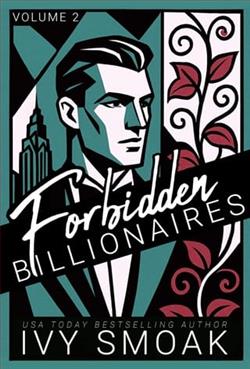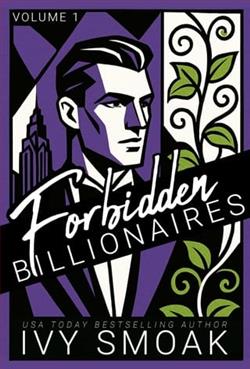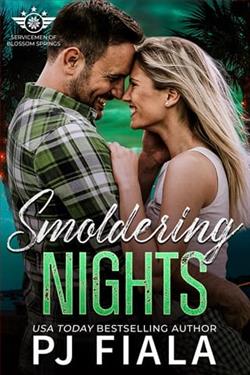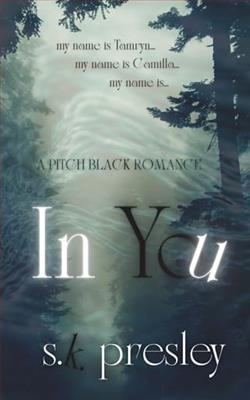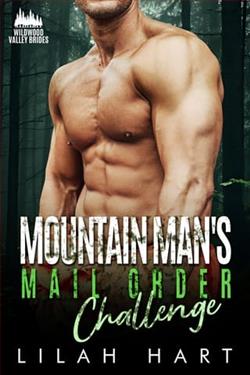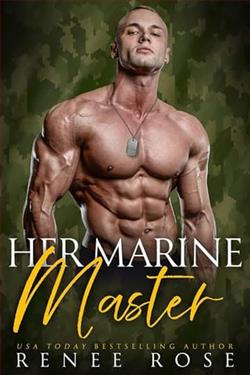Page 81 of So Far Gone
“I think so,” he said. “You?”
She nodded, tears spilling over her lower eyelids.
“And the kids?”
“They’re okay. Scared.” She cleared her throat. “I haven’t told them yet.”
Kinnick said, “It can wait.” Then: “I am so sorry, Beth.”
She nodded, and looked back over her shoulder, at Shane’s body, surrounded now by sheriff’s deputies. She covered her mouth and began crying again, in little gasps, Kinnick wanting to reach for her, but unable to move because he was strapped to the gurney.
One of the medics climbed in and said he had to shut the door of Kinnick’s ambulance now, Rhys muttering, “I love you,” as the door closed on his daughter’s tear-streaked face.
At the other end of the driveway, Brian was explaining himself over and over to various law enforcement officials—more out of their curiosity and respect for his shot than out of any suspicion that he’d done something wrong—he pointed, gestured, reenacted, telling them how he’d been worried for his friend (“He’s a real hapless son of a bitch”) and that’s why he and Joanie had driven up here from Ford, but as they approached, they’d heard a gunshot, so he’d had Joanie unzip his hunting rifle from its case and hand it to him. And, as he’d turned up the driveway, he saw Dean Burris bent over, and Kinnick running at him with what looked like a toy rifle, so he’d slammed the car into park, opened the door, stepped out with his rifle, rested it on the car door, and when he saw Burris rise a second time with the handgun, he’d taken aim, and fired.
“Hell of a shot,” the deputies said over and over.
“Thanks,” Brian said, keeping to himself that he’d been aiming for the man’s back, and had somehow hit his shooting arm instead. He felt sick every time he thought about it. The randomness of it all.
They told him they’d likely need to keep the gun for a while, to do forensics tests.
“All yours,” Brian said. “Long as I get it back before elk season.”
Kinnick’s ambulance was easing past them just then, and Brian gestured toward it. “Okay if I—”
“Oh, yeah, sure.” The deputy waved to the ambulance driver, who stopped. The deputy double-tapped the hood, then went around back and opened the door.
When he’d first seen his friend, after Brian ran up the driveway to check on poor Shane and make sure everyone else was okay, Kinnick had been too choked up to thank him. The enormity of it all. How close they’d come to dying. Like poor Shane, who had tried, at the end, to protect Bethany.
God, if anything had happened to her or to the kids—
Now, seeing his friend through the open door of the ambulance, the same feelings ofwhat might have happenedrushed through Kinnick, and his head fell forward, and he cried silently and helplessly, head bobbing back and forth. Brian leaned into the ambulance and squeezed Kinnick’s foot, the only part of his friend he could reach.
“X?est sx?l?x?al?t,” Brian said. He wished he knew a better phrase thanGood day, but he had only begun taking classes at the Salish School, and, for now, it would have to do.
Nine
What Happened After
We all have to live through a dark season now and then.This is what Kinnick told himself, in the coming months, during his long, painful recovery and the difficult time that followed. Still, he found himself wondering,How do we get back from something like this?
He moved to Spokane for his medical care and to help support Bethany and his grandkids as they struggled with Shane’s death. Kinnick had forgotten the hardest part of parenting: the realization thatyou can’t keep your family safe. That no matter how strong you were, or how much money you had, you could never totally shield the people you loved from the sorrows of life. Or shield yourself, for that matter. For weeks after nearly being killed, Rhys felt like they were all still in danger. He slept poorly, was always on edge, and, at times, felt totally bereft. Post-traumatic stress, his doctor said.
Kinnick wasn’t sure if the doctor was diagnosing him or the world.
Pestered by Lucy the day he left the hospital, Rhys had allowed himself to be interviewed by a young reporter named Allison. When the story ran, Kinnick was deflated. She’d gotten his quotes right and the details certainly seemed accurate, but reading about the whole thing in the newspaper somehow shrunk Shane’s murder, as if it had been nothing more than a seedy domestic squabble between a flaky wife,her religious husband, and his gun-toting militia friends. Rhys even started to wonder if that’s all it was. He had to remind himself of the limits of daily journalism, which was better at posing questions than answering them. Still, he wondered: Where was the story about how fear had infected so many people, how it had killed his poor son-in-law? How a sociopath like Dean Burris had burrowed his way into the Church of the Blessed Fire? How these insane things kept happening, these eruptions of senseless violence, of anger and ignorance and greed and mendacity, like ancient fissures bubbling up under the surface, and what—we were just supposed to go on with our lives? Wake up the next day like nothing happened, like we hadn’t lost our minds? Just turn the page, to the baseball scores or the horoscopes or celebrity birthdays? (Nothing to see here, just America.)
The best part of Allison’s story was the description of Brian: “a former air force marksman and environmental activist.”
“Air force marksman?” Kinnick teased him. “You were an electrician!”
“You want to go back and trust your life to an electrician?” Brian asked.
Brian admitted that he, too, was having trouble sleeping, and that he kept replaying that day in his mind, wondering what would’ve happened if he’d arrived a few seconds later—or a few minutes earlier. If, say, he hadn’t stopped to feed Billy on the way out the door. Maybe Shane would still be alive. (“Or Burris would’ve shot you, too, and we’dallbe dead,” Kinnick countered.) The sheriff’s investigator told Brian that his miraculous shot had hit Burris’s arm just above the elbow, and had torn through his forearm and wrist just as he raised the gun to fire, but what Brian couldn’t stop thinking about was how off-target and lucky that shot had been, and how easily two other things could have happened: one, he’d missed completely, or two, he’d killed the man.
“I wouldn’t want to have killed someone,” Brian said. “I’ve made it this far in life without killing anyone. Be a shame to start now.” Hetold Kinnick that he and Joanie had gone up to the spring barter faire in Tonasket, where they bought some of Jefe Jeff’s soap, and a couple of nice belts, and that he’d filled Jeff in on everything that had happened, and that Jeff had offered them a free guided acid tour. He said Joanie was game, but that he couldn’t be talked into it.
“Maybe you and I can take a trip sometime,” Kinnick said.








